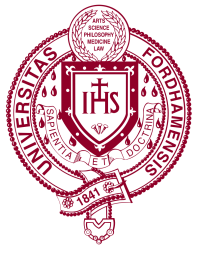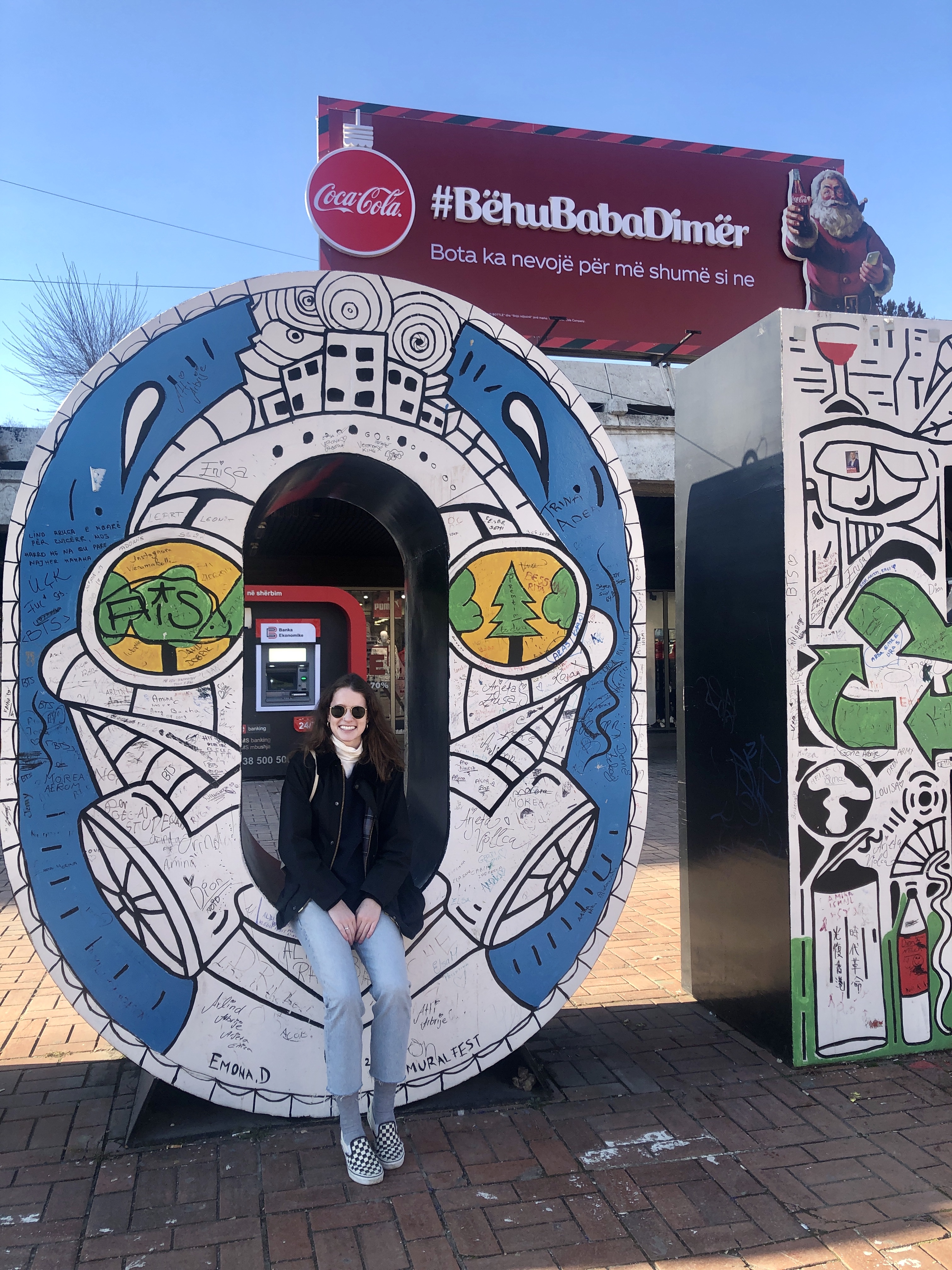Edited by Alex Finn-Atkins
Jane Winsett graduated from Fordham’s Graduate School of Social Service in May 2019, earning herself a master’s degree in Social Work. Just a few months later she was on a plane to Kosovo, a small country in Southeastern Europe, where she would begin her role as an English Teaching Assistant (ETA) at the University of Pristina on a Fulbright—a 9-month fellowship that promotes cultural exchange, peace, and mutual understanding between nations.
This is the perfect opportunity for a motivated and culturally-sensitive individual who dreams of a career in educational programming for sexual violence prevention upon returning to the United States.
Jane’s interest in helping others, particularly in cross-cultural contexts, stems back to her undergraduate years at Miami University in Ohio, where she double majored in International Studies and Women’s, Gender, & Sexuality Studies and worked as a victim advocate at a local rape crisis center. She also minored in Spanish, volunteered as an English language tutor for recently arrived immigrants, and studied journalism abroad for two months in Kosovo.
It is no surprise then that Jane dedicated much of 2019 to preparing her application for a Fulbright ETA in Kosovo. In an article from Fordham News, Jane explains how she worked with Dr. Anna Beskin at the Office of Prestigious Fellowships to perfect her application essays. Writing those two dozen essay drafts ultimately paid off, as Jane was selected as a recipient of the Fulbright US Student Award!
We recently caught up with Jane to ask her how things are going in Kosovo. Below you’ll find our conversation, which has been edited and condensed for this publication.
1. Why did you choose Kosovo as your host country?
I lived and studied in Kosovo for two months during a college study abroad program in 2015 and hoped that I would eventually find my way back to the country. When I received an email from Anna about a Fulbright information session, it seemed like the perfect opportunity to reconnect with Kosovo. I love the Brutalist architecture, random encounters with locals that turned into long-term friendships, and participating in the country’s community organizing.
Kosovo declared independence from Serbia in 2008 but is not fully recognized internationally. It has the youngest population in Europe, with most citizens under the age of 30, as well as high unemployment and poverty rates.
2. When did you first become interested in education?
My mom is a preschool teacher, and I have fond memories of helping her create lesson plans and leading activities in the classroom. I like teaching older students in Kosovo because our conversations are more advanced and the classroom is an opportunity for cultural exchange.
3. How would you describe your typical day as a Fulbrighter in Kosovo?
My classes start in the afternoon, so I normally have time in the morning to get coffee or a meal with a friend at a cafe. There are several other Fulbrighters also living in Prishtina, the capital city, and we try to have group meals a few times a week. Most restaurants serve Mediterranean and Italian dishes, but there’s a solid Thai restaurant for when we need a change of pace. I love eating burek—flaky pastries with cheese, spinach, or meat—and kebab.
I arrive early at the university so I can visit with the students and have casual conversations unrelated to schoolwork. I help teach university- and graduate-level English courses, so my students are my age or older. They are all friendly, welcoming, and curious about why I’m here. We talk about Netflix shows, U.S. movies, and Kosovo’s national soccer team. In December, conversations shifted to Christmas movies and my family’s holiday traditions. I think our interactions outside of the classroom create a good foundation for learning because they’re comfortable with me and know I’m on their team.
Classes end in the evening, at which point I either meet friends for dinner or pick up food from a bakery near my apartment. I like to attend local cultural events, like film screenings and musical performances.
I am also taking Albanian language classes with three other Fulbrighters placed in Prishtina. Albanian is an isolated language, so I had trouble finding online resources before my grant started. The classes don’t have a strict format, which is helpful because we’re able to personalize the learning experience and request specialized content. I now feel comfortable having basic conversations in Albanian, like when I’m at a grocery store or talking to my landlady. I’ve found that my students are more open to participating in class when they realize I’m also learning a new language, so I try to practice my Albanian with them during lessons.
4. How does the education system in Kosovo differ from the educational system in the US?
Several of Kosovo’s public and private universities lost their accreditation a few months before we arrived in the fall, so it’s definitely an interesting academic year to be teaching. My class sizes are larger than expected since students cannot enroll in their local universities.
5. What challenges or unexpected events have you had to overcome thus far?
It’s challenging to not have access to any technology in the classroom, but moving away from PowerPoint presentations and the Internet has made me creative with my lesson plans. I’ll ask the students to use their phones for an activity, or I’ll bring in handouts that correspond with activities in their workbooks. The textbooks we use are 20-years-old and in British English, so the goal is to create discussion questions and activities that are meaningful and relevant—and to make sense of British slang words I’ve never seen before.
Also, I’m one of the youngest people in the classroom because most of my students are in their thirties or older. I think this helps make the classroom a collaborative space for sharing and asking questions because they view me as more of a peer.
6. How will you share your experiences abroad in Kosovo with your community in the US?
Both teaching and living in a foreign country have boosted my confidence and self-sufficiency. I’ve also found that most people are familiar with the Fulbright Program but are unsure of where and what Kosovo is, so I naturally end up in conversations about the country, its history, and its significance in my life.
7. What advice would you give to other Fordham students applying to Fulbright or other teaching fellowships?
Pay attention to Dr. Beskin’s Fulbright Friday emails because they have helpful reminders and tips for completing the application, and emotionally prepare yourself before reviewing new edits on your essays. I would initially feel so overwhelmed when I saw dozens of comments on the Word document, but after taking space I was able to tackle each edit with a clear head.
Be sure to keep regular appointments with Dr. Beskin because they give you a chance to ask questions and talk through the comments with her. Even when I wasn’t able to meet with her in-person, we would chat on the phone and go through the essays together.



